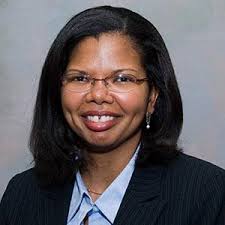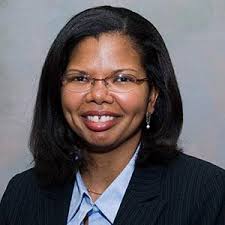

By Dale Robinson Anglin, Program Director, Youth, Health & Human Services, Cleveland Foundation
The COVID-19 pandemic has upended life as we know it here in the U.S. As a longtime advocate for STEM/STEAM learning, I am proud to see our doctors, nurses, data analysts, scientists, IT professionals and so many other STEM practitioners stepping up as essential leaders and heroes in the fight. As a program director at the Cleveland Foundation, I am heartened to see our community stepping up to support one another, especially our most vulnerable residents, in this challenging moment.
Community foundations, including the Cleveland Foundation, have historically supported their communities in times of crisis, and to address the current pandemic, many have launched collaborative relief funds. So far, more than $356.5 million has been mobilized by nearly 250 community foundations, and more than $54.8 million in grants have been announced. You can learn more about how the community foundation field is stepping up here.
In Northeast Ohio, foundations, corporations, public agencies, and individuals came together to launch the Greater Cleveland COVID-19 Rapid Response Fund, an emergency fund designed to complement the work of public officials and expand capacity of frontline nonprofit organizations in Cuyahoga, Lake and Geauga counties. Since the fund’s launch on March 18, more than $6 million has been raised, and a total of $1.68 million has been awarded to 21 nonprofit organizations. We encourage all to join us by making a gift of any amount to the Rapid Response Fund online at www.ClevelandFoundation.org/Response.
In addition to our support for the Rapid Response Fund, the Cleveland Foundation has also authorized emergency funding to support a significant portion of a clinical trial – led by University Hospitals in partnership with Case Western Reserve University, MetroHealth and Summa Health – to assess whether the investigational drug ARMS-I helps prevent airborne transmission of coronavirus and whether it reduces the symptoms of healthcare providers who have tested positive for the virus. With the funding coming from previously restricted health-related research grant dollars at the foundation, our support for the clinical trial reinforces our commitment to all the compassionate individuals who work on the frontlines every day in service of our most vulnerable residents.
Unfortunately, the pandemic’s public health and economic crisis has also exacerbated the digital divide crisis. A great article on the issue can be found here. In Cleveland, where we have the highest poverty rate for children in the country, almost half our K-12 students do not have computers and equal numbers don’t have consistent connectivity. With the focus on meeting basic needs, should connectivity be considered a “basic need”? I suggest STEM/STEAM proponents have an opportunity and a mandate to work within your communities to highlight how important connectivity is to students’ academic and social emotional success during the crisis.
Philanthropic dollars are only a drop in the bucket compared to the government dollars that must be deployed to address this crisis, but every dollar counts when the needs are this great. We all have a role to play in helping our communities respond to the COVID-19 pandemic. As we prioritize the most urgent basic needs right now, we must also keep an eye on the horizon, understanding that this recovery will be wide-ranging and relatively long-term. No donation or act of service is too small. While social distancing keeps many of us apart, it need not impact our sense of community. We must stay engaged and do what we can to help our neighbors – the only way we can get through this is together.
